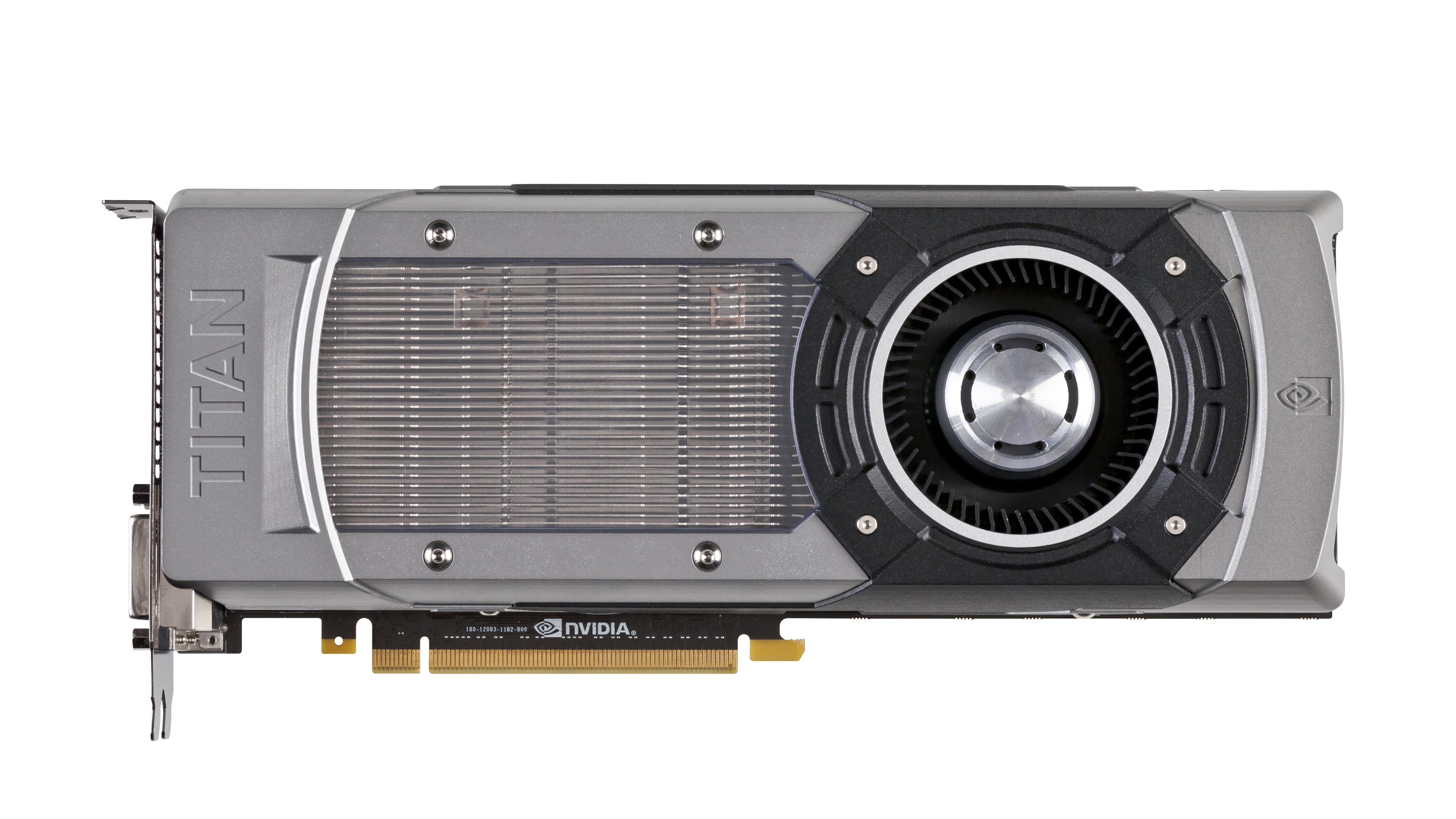TechRadar Verdict
Pros
- +
The fastest single GPU card out
- +
Clever power and heat management system
- +
6GB of GDDR5
Cons
- -
Very expensive
- -
Some older dual-GPU cards have it beat
Why you can trust TechRadar
The Cray Titan awoke at the end of October last year, benchmarking at 17.59 petaflops it's the fastest of the current generation of supercomputers.
Why would you care about a supercomputer when we're meant to be talking about a big graphics card? Well, Nvidia supplied 18,688 Tesla K20 cards to pack out the Titan and in exchange has nabbed the name to stick on its gaming-focused versions with the same GPU.
There was always the feeling that the GK104 GPU at the heart of the GTX 680 wasn't the fastest implementation of Nvidia's Kepler architecture way back when I first got hold of our test unit back in March of last year. That was confirmed a few months later when we saw those Tesla K20 professional graphics card, home to the full-fat Kepler core, the GK110.
The instant that card was confirmed though we were all here taking bets on how long it was going to take before Nvidia took the plunge and dropped the GK110 into a proper gaming desktop card.
None of us thought we would have to wait this long, however, to a time in the year when we were half expecting a new generation of graphics cards to hit.
Sadly it looks like the great graphics powers-that-be have decided we don't need a new generation right now. AMD has announced it's sticking with the current range of HD 7000 cards right through 2013, and we're only likely to see a new lineup right at the end of the year. And with the launch of Nvidia's GTX Titan I would bet that the next line of GTX 700 series cards, based on the upcoming Maxwell architecture, aren't going to be tipping up until the late-summer at the earliest.
Whatever happens with the next generation of graphics cards though it's going to be incredibly difficult for any new GPU to be able to best the power available to the GK110 silicon.
And as such this is probably going to be the fastest single-GPU card we'll see until Nvidia itself decides to pull the top chip out of the next-gen Tesla cards and offer it up to the desktop gaming crowd. Well, unless AMD does something completely unprecedented with Sea Islands.
So, for the foreseeable this is the fastest single-GPU card around. And that's exactly what Nvidia was after as Tom Petersen, Nvidia's Director of Technical Marketing, told me a few weeks before launch: "this is without doubt the biggest, baddest, fastest graphics card we've ever built.
The key thing about it is that it does crush all other single-GPU cards we've ever built and it crushes all other single GPUs anyone's ever built."
That assertion about its single-GPU credentials is really the key to the GTX Titan. That's because it's not actually the fastest graphics card anyone's ever built, in fact both the EVGA GTX 690 and Club3D HD 7990 we're putting it up against are faster cards out of the blocks.
But is overall straight-line performance the be-all-and-end-all? Nvidia would say no, AMD would say absolutely yes.
Who's right? Well, as Obi Wan would say, you will find that many of the truths we cling to depend greatly on our own point of view…
